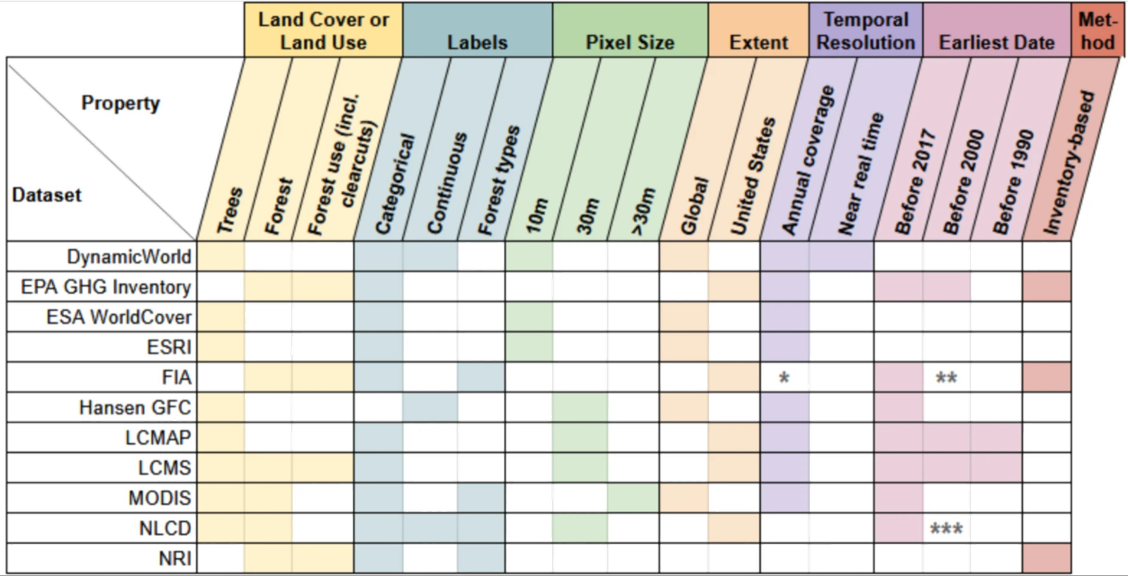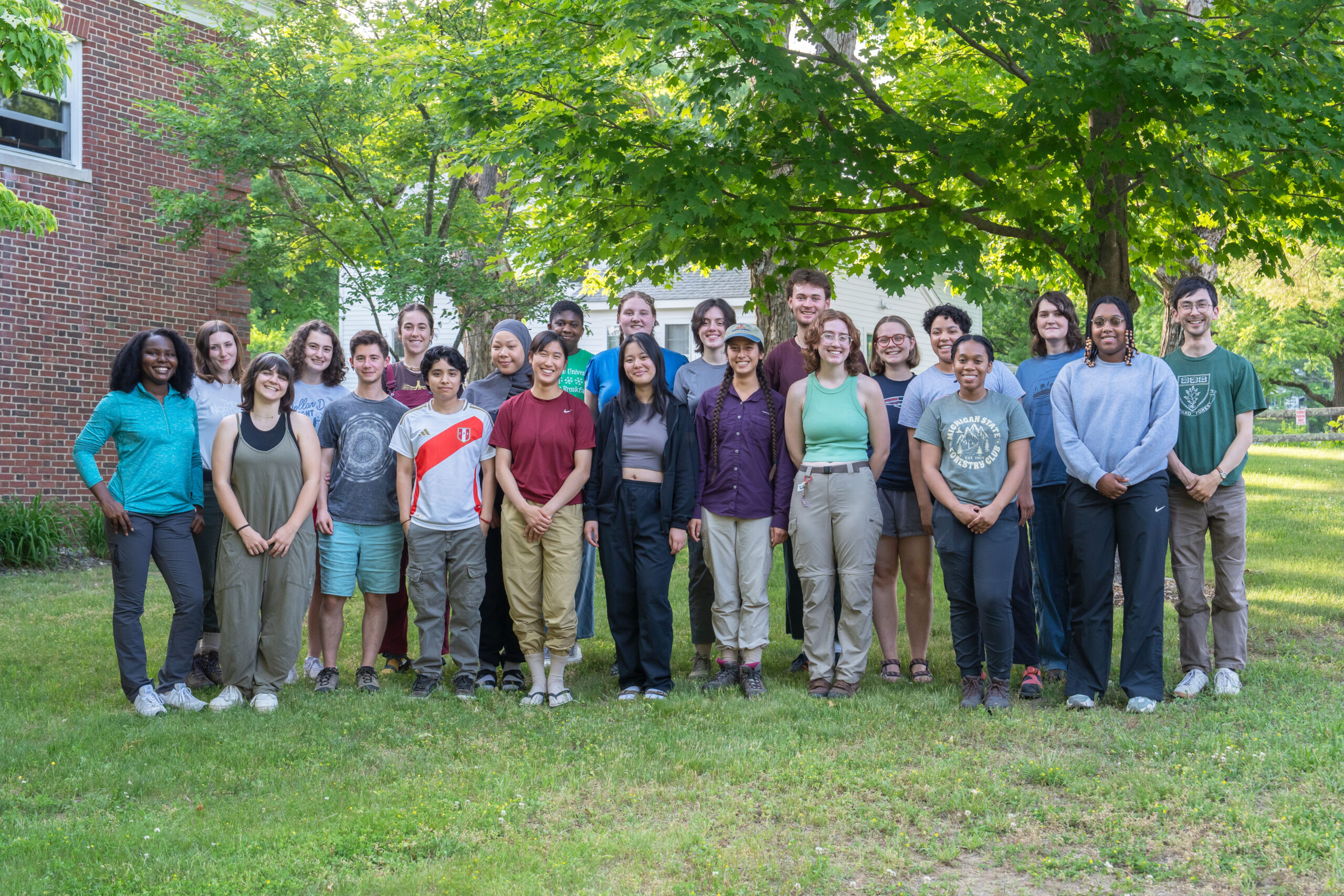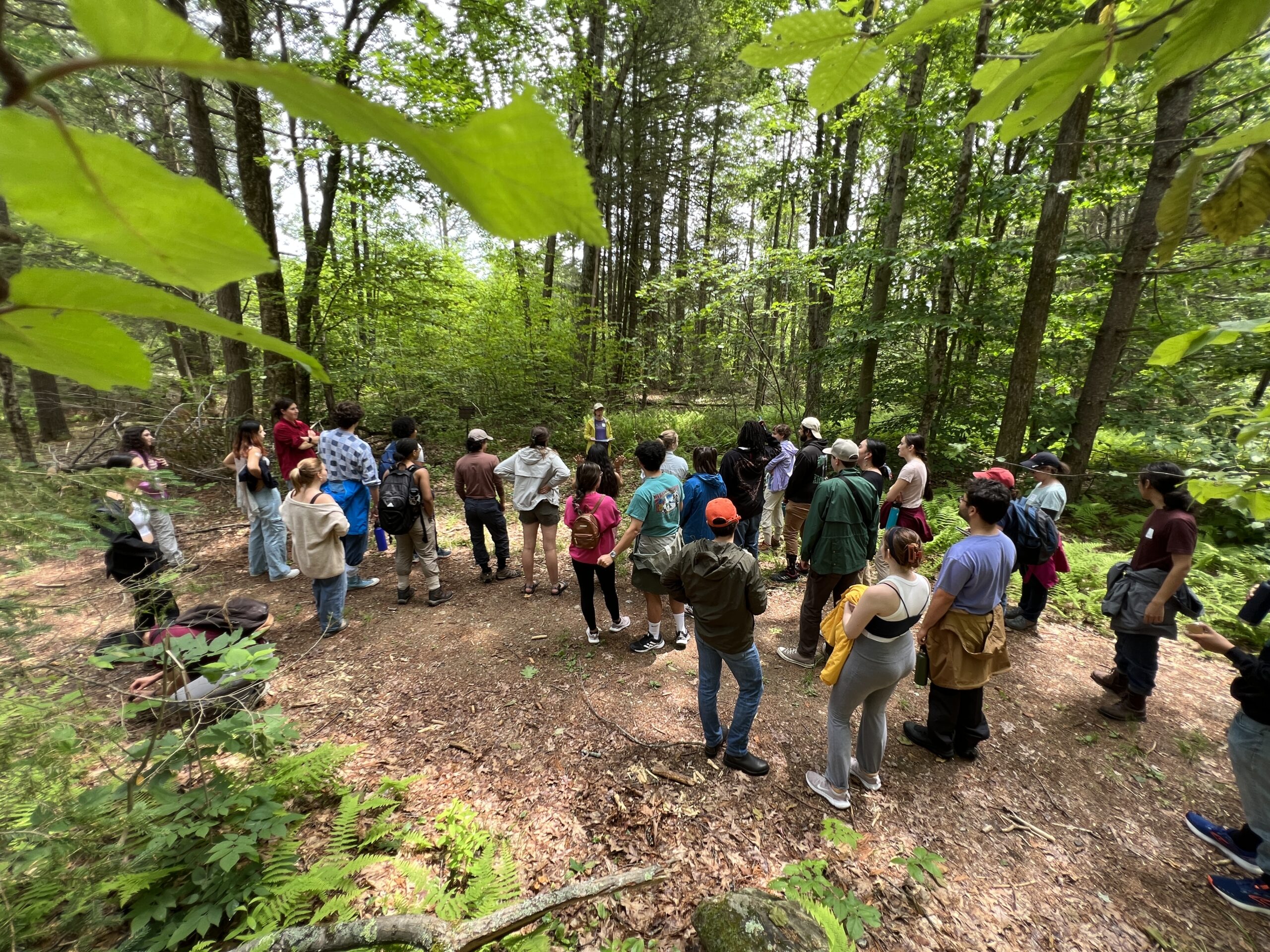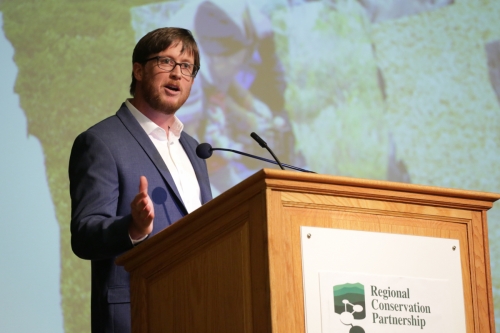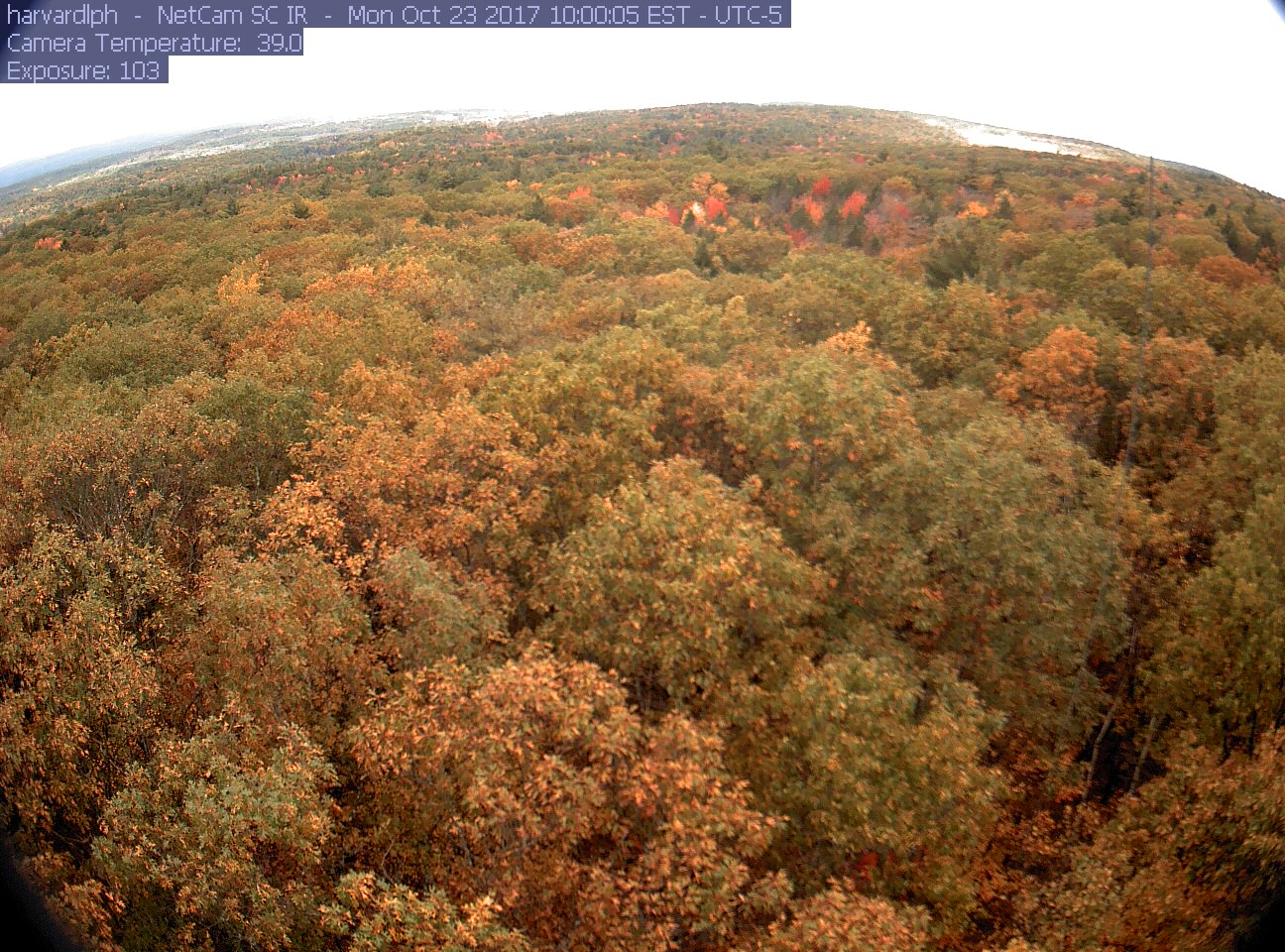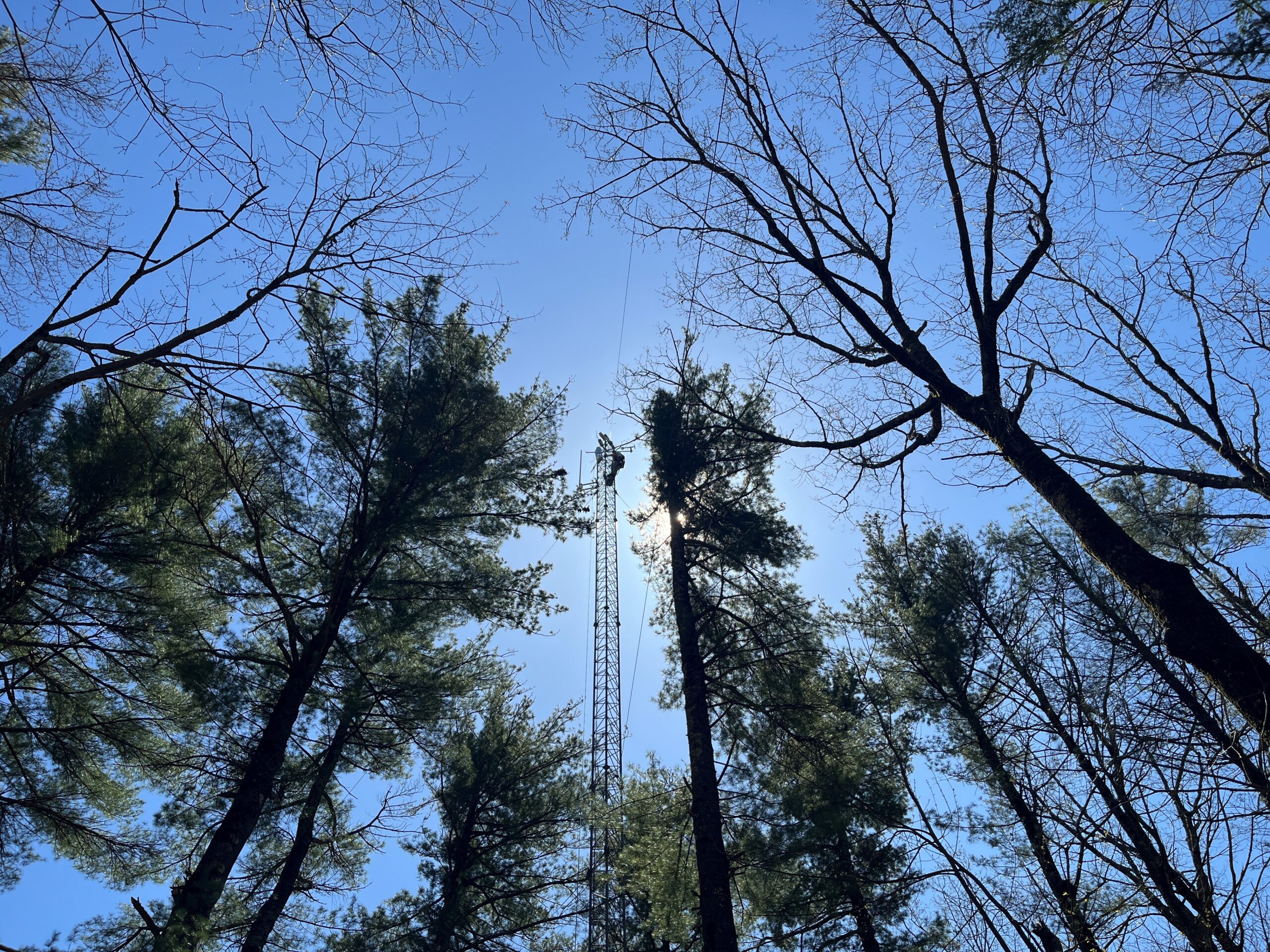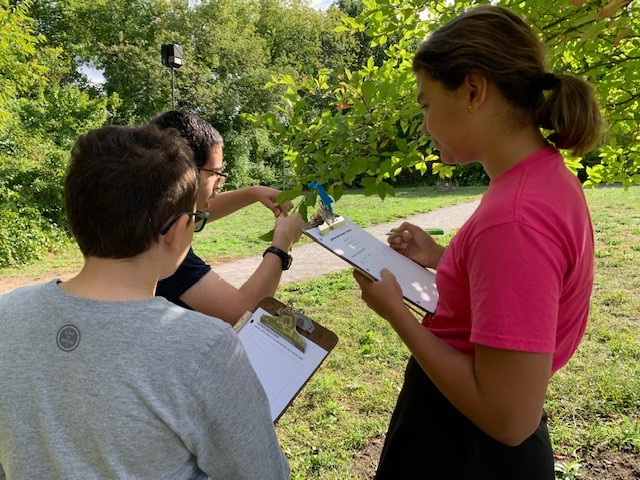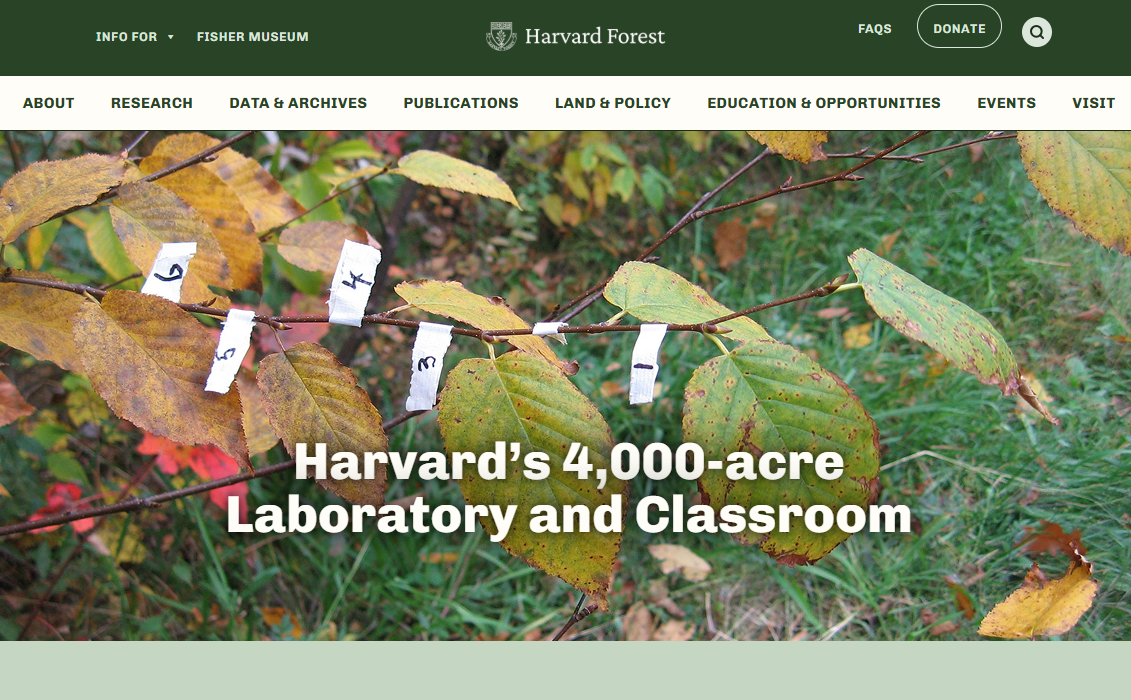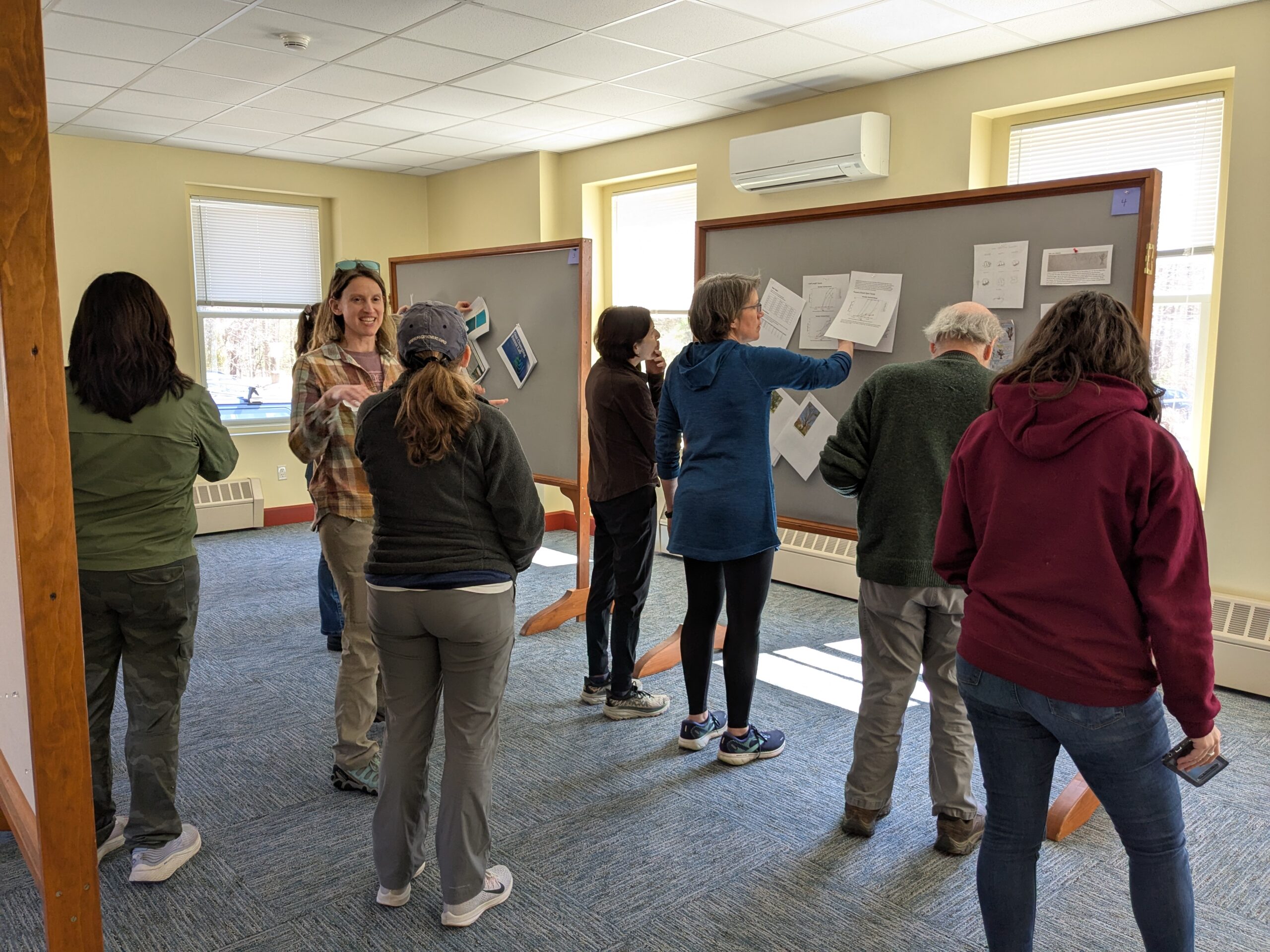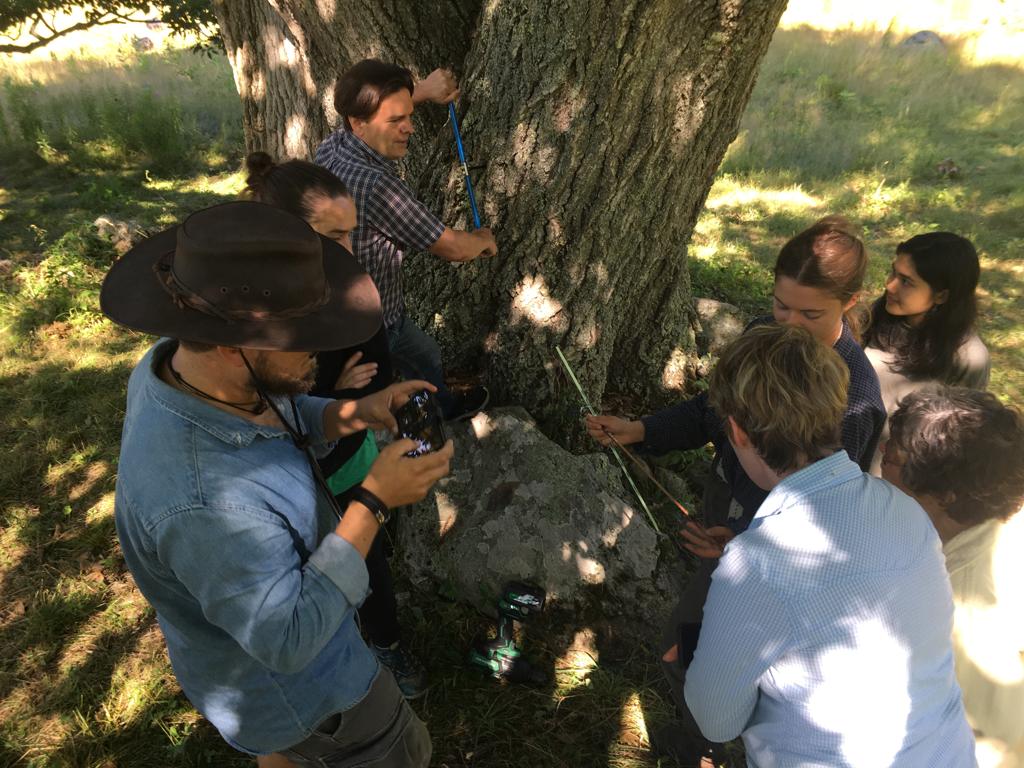January 27, 2026
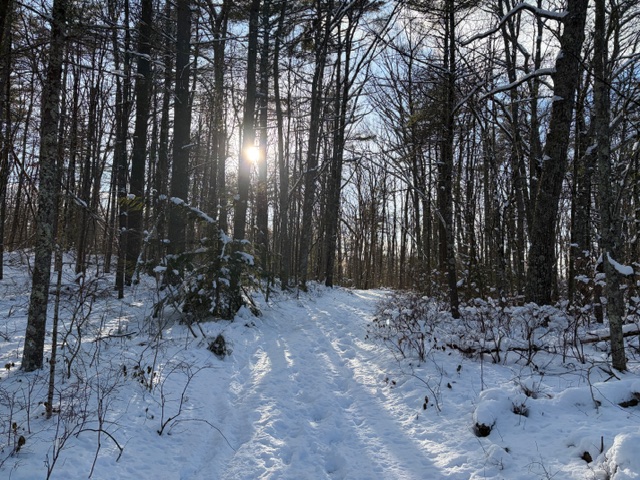
Harvard students, faculty, fellows, and staff are welcome to sign up for a free Community Bus Trip to Harvard Forest on Saturday, March 28, 2026.
The 4 hours spent on site will be guided by educators and scientists at the Forest, including:
- an overview of Harvard Forest’s interdisciplinary research and education programs
- a brief, interactive tour of the Fisher Museum
- a ~2-mile guided field tour on uneven dirt roads with low to moderate incline:
- explore several of the Forest’s signature climate research experiments
- optional: weather-permitting, climb a 92′ research tower
- learn local plant and wildlife ID
- discuss the Indigenous and colonial history of the region
- discuss modern efforts in climate policy, land management, environmental education, and Indigenous community collaboration
Bus trips will depart Harvard Square at 10:00am and return to campus by 6:00pm. Attendees must bring their own lunch and snacks; Harvard Forest is a rural area and there is no way to purchase food or drinks here.
Registration is first-come, first-served, except that first-time visitors and graduating students will be prioritized if registration is over-subscribed.
